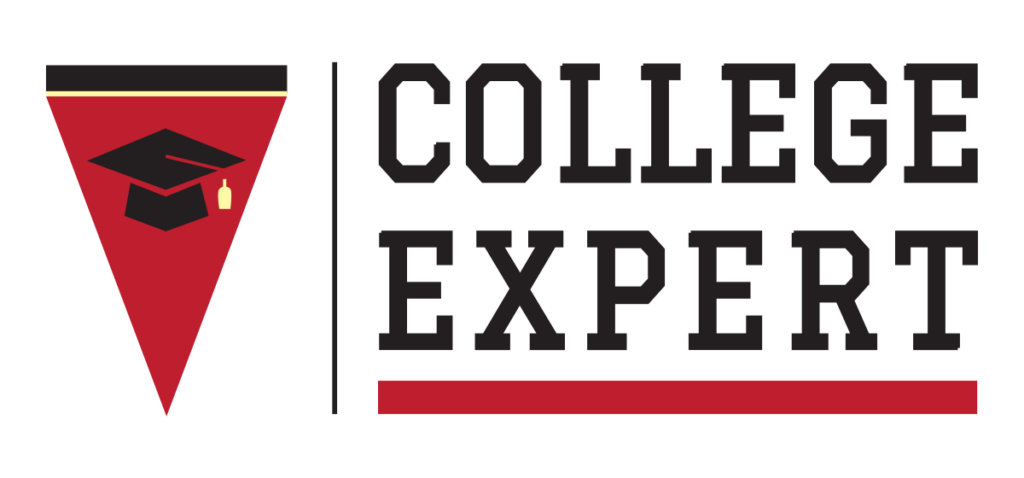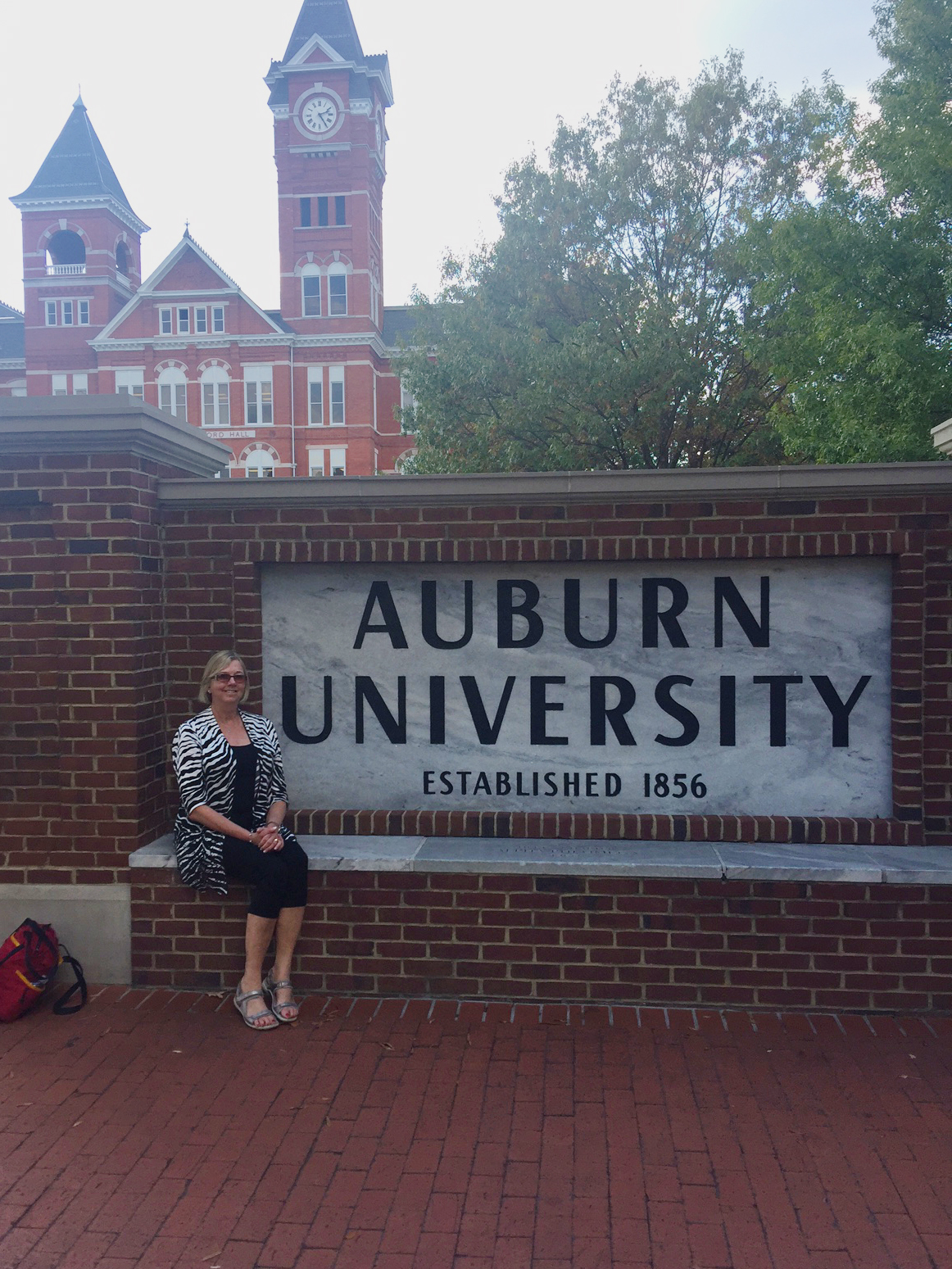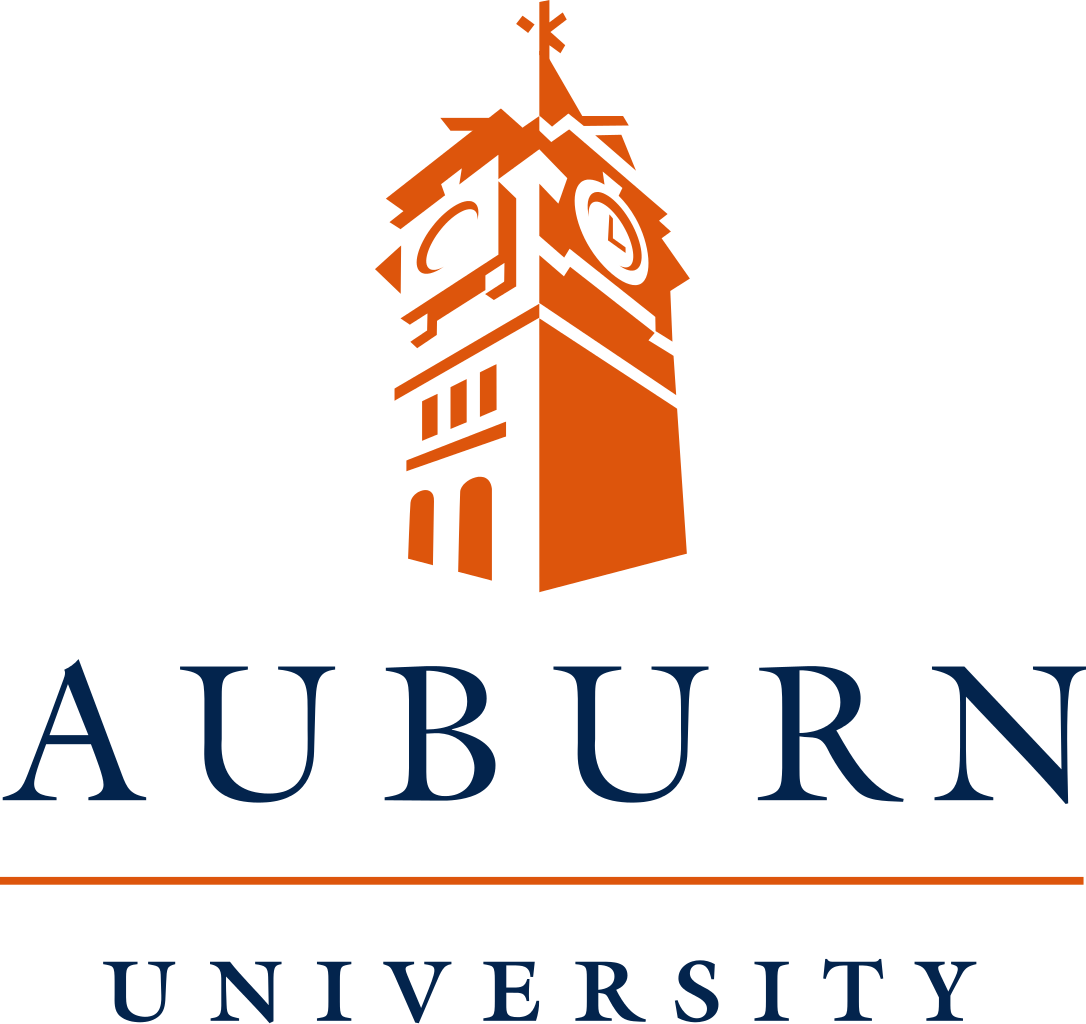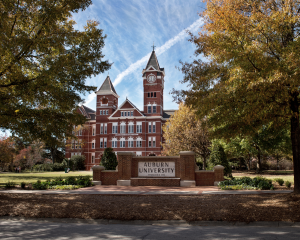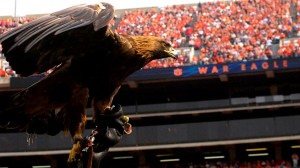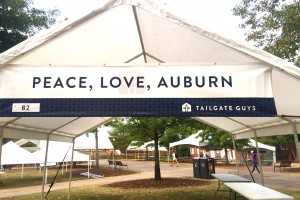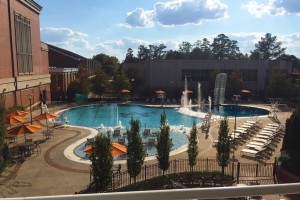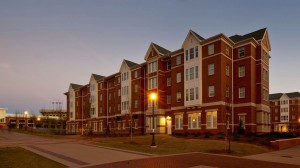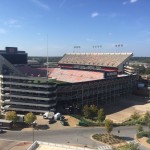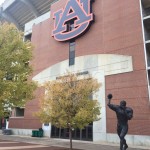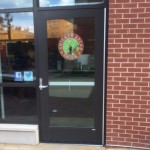On a sunny fall afternoon, Tom (my trusty travel companion and husband) and I made the easy 90-minute drive from the Atlanta airport to Auburn, Alabama. The staff at the beautiful Hotel at Auburn University warmly greeted us. Auburn is a small, charming town with unique shops and restaurants. We ate dinner at The Hound, a family-owned restaurant famous for its delectable “bacon and bourbon.” Tom and I relaxed with the locals and watched the final World Series game: Chicago Cubs vs. Cleveland Indians!
Starting at 10 a.m. the following day, I spent six informative hours on campus: touring the grounds, which include the lovely Davis Arboretum; attending a large lecture class on the end of an empire and post-colonialism; eating lunch at Chicken Salad Chick (who knew chicken salad could be prepared in so many different ways!); and meeting with the enthusiastic Auburn admissions staff.
About
U.S. News and World Report consistently ranks Auburn among the top 50 public universities. Built in 1856, Auburn started life as an all-male college. Today, it’s a revered land-grant research institution with approximately 22,650 total undergraduate students (4,500 freshmen), evenly split between male and female. Auburn holds the distinction of having graduated six NASA astronauts, as well as three past directors of the Kennedy Space Center. Auburn’s spirit and innovation are best exemplified by Aubie, the high-energy, mischievous tiger who is a nine-time National Mascot Champion!
Academics
The Honors College is home to nearly 2,000 bright undergraduate students from across Auburn’s twelve academic colleges and schools. For fall of 2017, the minimum admissions requirements are a high school weighted GPA of 3.85, an ACT score of 29 or an equivalent SAT score of 1290 (old test) or 1350 (new test), and a written essay. The deadline for completion of the by-invitation-only Honors College application is January 15th. Selected students complete 30 hours of honors credits, including honors core, departmental, and contract courses; faculty-led honors seminars; honors research seminars; graduate-level classes; and honors study and travel courses, participation courses, and interdisciplinary courses. Participating students graduate as either University Honors Scholars or Honors Scholars, with the designation noted on transcripts and diplomas. The medal bestowed upon each student symbolizes a passion for excellence throughout college.
Agriculture, architecture, design, and construction, and engineering are Auburn’s top programs. The teacher certification program is noteworthy, too. Students who are admitted to the Samuel Ginn College of Engineering are considered “pre-engineering” until they select specialties. The chemical engineering program has strong ties with industry, and encourages students to become involved in Auburn’s cooperative education program to gain valuable experience. Chemical engineering is housed in its own building with sophisticated laboratories, including the Supercritical Fluids Laboratories and Biochemical/Biomass/Biotechnology Laboratories.
Auburn’s College of Architecture, Design and Construction is home to three sub-schools: School of Architecture, Planning, and Landscape Architecture; School of Industrial + Graphic Design; and the McWhorter School of Building Science. A portfolio is not required for admission into the pre-architecture, pre-landscape architecture, and pre-industrial design programs. Admission is primarily based on a student’s grade point average and SAT or ACT score.
The architecture program, nationally-ranked in the top 20, is a five-year bachelor’s degree accredited by NAAB. Once accepted to Auburn as pre-architecture, a student decides on one of two paths to fulfill the requirements of the pre-professional model curriculum: Foundation Unit Studio or Summer Design Studio. After completing the base curriculum, Auburn then selects a total of 60 students (out of 100 to 120 applicants) for the professional architecture program.
Student Life
Football is a rich tradition at Auburn. The team’s history, and ability to sell out a stadium, attract talented SEC players. The athletic recruiting office is filled with current students whose role is to entertain prospective athletes. Auburn boasts a spirited traveling fan base and active alumni. Even today, women and men dress up for football games. On game day, hundreds of white tailgating tents – available for lease on a yearly basis – dot the area surrounding the stadium. (Students are not required to lease the tents.) “War Eagle” is the battle cry, yell, or motto amongst supporters of Auburn sports teams, especially Tigers football.
It’s also the title of the fight song and the nickname of Auburn’s Golden Eagle. Since 1930, and continuously since 1960, Auburn has kept eagles as live, untethered mascots which fly over the football stadium at athletic events. War Eagle VII – a Golden Eagle named Nova – along with Spirit, a Bald Eagle, perform the War Eagle Flight before Auburn home games at Jordan-Hare Stadium. At the end of the flight, the eagles receive mouse rewards.
Auburn’s Recreation and Wellness Center is first-class. In fact, it’s among the top five ranked college recreation centers in the country, according to College Rank. The outdoor space is dominated by a pool that rivals any water park, along with a 45-seat hot tub shaped like a tiger paw. Other special amenities include a PGA golf simulator, a climbing wall, and Pilates reformers.
Welcome Week, Crush Finals, and Hey Day are just a few of the annual events that make Auburn a place to create memories. Dating back to World War II, the student body and members of the Student Government Association pushed for a day that would unite the Auburn family and promote a friendly atmosphere. Hey Day was born. Each year, the campus carries on the tradition of handing out name tags and encouraging students, faculty, and the rest of the Auburn family to greet one another with enthusiasm.
Housing and Dining
Seventy percent of Auburn freshmen live on campus in the stately red brick buildings. Housing – with varying lease rates across 32 residence halls in five neighborhoods – is awarded on a first-come deposit basis. Special dorm options include all-female, only upperclass, and only honors students. Most sophomores, juniors, and seniors choose to live off campus. There are more than 34 dining options, including many Tiger Traxx food trucks!
Admissions
Forty percent of Auburn’s undergraduates are from out of state; the university is favored by Atlanta-area students. For Auburn’s Class of 2018, the middle 50 percent of students received an ACT score of 24-30 and a weighted GPA of 3.83. Although Auburn does not superscore the ACT, students are encouraged to take the test multiple times to achieve the best composite; the ACT writing component is not required.
Auburn is known for its generous allocation of merit scholarships to qualified candidates. Incoming freshmen with ACT scores in the 33-36 range and a minimum 3.5 weighted GPA are prime candidates for the $18,000 per year Academic Presidential Scholarship. Upon completion of the general application and any supplemental applications, students are automatically matched with specific scholarships. Most of the scholarships do not require additional paperwork for consideration.
Effective December 1st, Dr. Taffye Benson Clayton will become Auburn’s first Associate Provost and Vice President for Inclusion and Diversity. The new role was developed in response to Auburn’s strategic goals and priorities. A comprehensive campus climate study indicated key areas of opportunity to cultivate a more inclusive and diverse campus.
Who Would Be Happy Here?
Minnesota students in search of a large public institution with a small-town, preppy feel would love Auburn. The Southern warmth is palpable. Greek Life is pervasive, although there are no sorority houses on campus. Auburn would appeal particularly to engaged, somewhat conservative students who seek a change of scenery outside their Midwest comfort zone.
